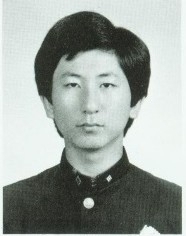Criminal Lee Chun-jae was belatedly found to have made a dubious confession, raising doubts about the credibility of statements in which he identified himself as the killer in South Korea's worst serial murder case.
On Wednesday, police announced that the 56-year-old admitted to committing nine of the 10 murders in the Hwaseong serial murder case in addition to around 30 rapes and attempted rapes.
He also confessed his involvement in five separate murders, the police said, without elaborating on the other cases due to ongoing investigation.
On Wednesday, police announced that the 56-year-old admitted to committing nine of the 10 murders in the Hwaseong serial murder case in addition to around 30 rapes and attempted rapes.
He also confessed his involvement in five separate murders, the police said, without elaborating on the other cases due to ongoing investigation.

One of the 10 murders, the eighth in chronological order, was excluded as police had earlier concluded it was a copycat crime. A 22-year-old was identified as the killer and served a jail term.
The confession came after a series of forensic test results showed his DNA matched that on the belongings of victims in at least four cases.
The copycat crime was found to have been one of the five cases the police declined to elaborate on during a closed-door briefing on Wednesday.
The latest finding is seen as undermining the credibility of Lee's confessions. Critics had raised the view that he may have admitted to committing the crimes to dodge additional investigation.
If Lee is confirmed as the criminal behind the copycat crime, it also plays to undermine the police for punishing an innocent person in the past.
Lee is currently serving a sentence of life imprisonment at a Busan prison for raping and killing his sister-in-law in 1994.
The murders of 10 women in rural parts of Hwaseong, 60 kilometers south of Seoul, between 1986 and 1991 are still considered one of the country's worst cases of serial murder. The crimes, targeting women aged 13 to 71, became notorious for their brutality.
The criminal lurked in farmland or on paths in deserted areas in the suburban city before attacking women who were on their way home late at night or around dawn. The criminal did not use deadly weapons but instead strangled the victims using their belongings such as stockings or socks and damaged the bodies.
More than 2 million man-days -- a record number for a single case, even after 30 years -- were spent by police investigating the case, but without much success.
It was only in mid-September that police identified Lee as a prime suspect based on forensic DNA tests. (Yonhap)







![[Graphic News] More Koreans say they plan long-distance trips this year](http://res.heraldm.com/phpwas/restmb_idxmake.php?idx=644&simg=/content/image/2024/04/17/20240417050828_0.gif&u=)
![[KH Explains] Hyundai's full hybrid edge to pay off amid slow transition to pure EVs](http://res.heraldm.com/phpwas/restmb_idxmake.php?idx=644&simg=/content/image/2024/04/18/20240418050645_0.jpg&u=20240419100350)






![[From the Scene] Monks, Buddhists hail return of remains of Buddhas](http://res.heraldm.com/phpwas/restmb_idxmake.php?idx=652&simg=/content/image/2024/04/19/20240419050617_0.jpg&u=20240419175937)

![[KH Explains] Hyundai's full hybrid edge to pay off amid slow transition to pure EVs](http://res.heraldm.com/phpwas/restmb_idxmake.php?idx=652&simg=/content/image/2024/04/18/20240418050645_0.jpg&u=20240419100350)

![[Today’s K-pop] Illit drops debut single remix](http://res.heraldm.com/phpwas/restmb_idxmake.php?idx=642&simg=/content/image/2024/04/19/20240419050612_0.jpg&u=)